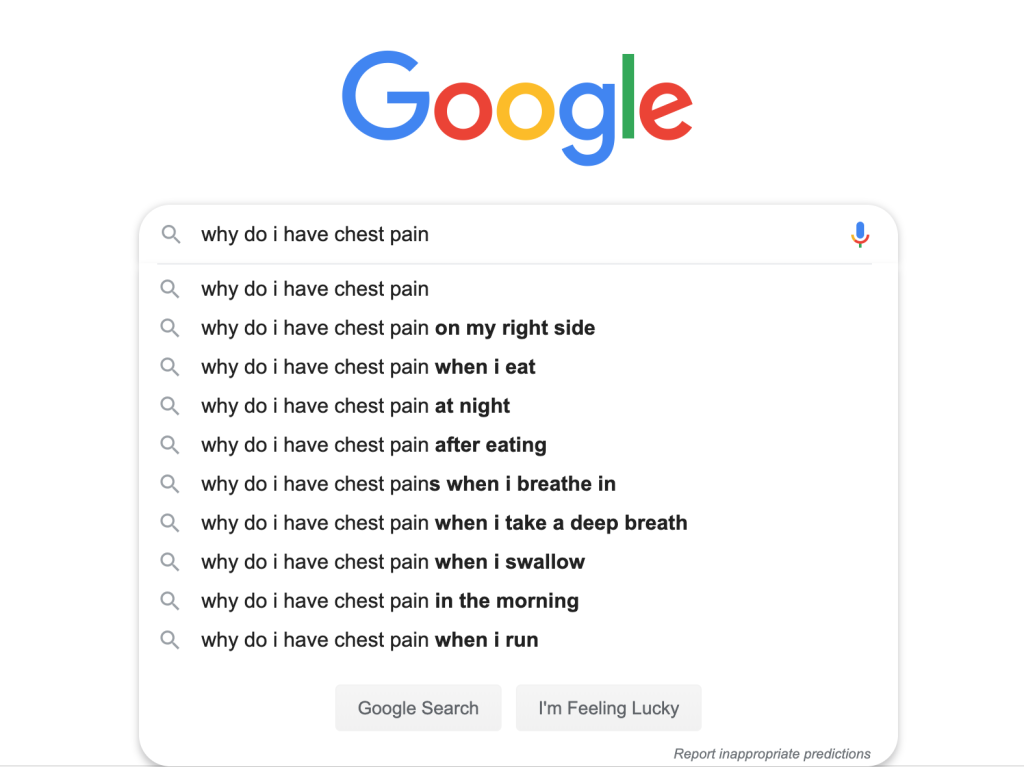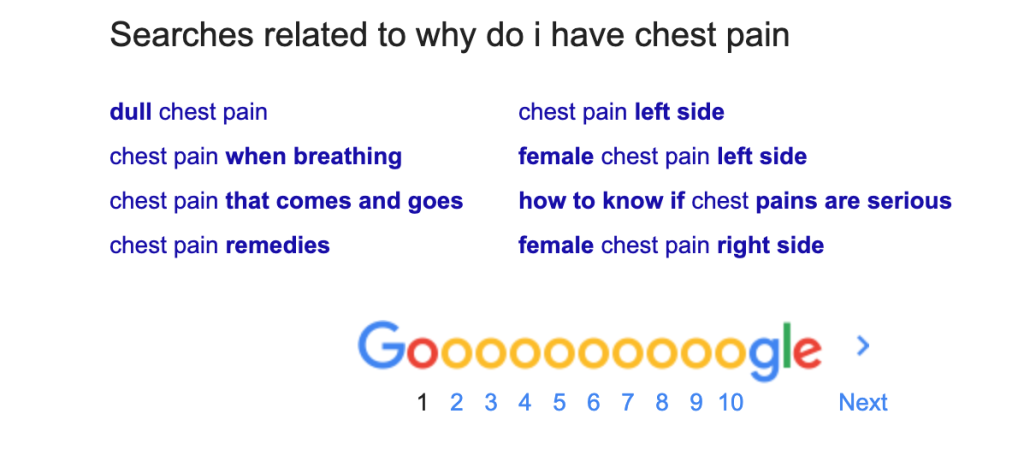Photo by Merakist
Originally Posted On: https://greatlakesadvisory.com/free-guide-how-to-grow-your-medical-practice-with-seo/
In a 2018 consumer survey conducted by Doctor.com, 80% of respondents stated that they had used the Internet to search for health information within the past year.
However, a website alone is not sufficient to remain competitive. In the study mentioned above, 63% of respondents stated that they would choose one provider over another based on the strength of the provider’s web presence.
How do you strengthen your practice’s web presence?
You must maximize the exposure your website receives from search engines by implementing SEO techniques. SEO is the practice of configuring your online presence to maximize exposure to people that are browsing the internet with search engines.
The Importance of SEO For Your Medical Practice
SEO provides numerous benefits to your practice.
Firstly, SEO increases your online visibility. Most people do not go beyond the first page of search results, so your website must appear on the first page to receive significant web traffic from search engines.
Because of SEO’s ability to increase online visibility, implementing SEO can reduce your patient acquisition costs. SEO requires a significant time investment upfront (or financial investment if you outsource it) to see results, so these costs will not decrease in the short-term. However, you will receive inexpensive traffic in the long term when your site begins ranking in search results.
SEO can also improve your return on your marketing investment. When you implement SEO, you are targeting people that are seeking the types of services you offer instead of the general public.
Additionally, since SEO leads are inbound traffic, they are more likely to convert (become a patient of yours). SEO leads have a 14.6% conversion rate, compared to 1.7% for outbound leads.
Lastly, SEO boosts your credibility. Favorable reviews of your practice, especially on Google’s Google My Business business directory, prompt Google to place your practice higher in the search results. Not only will more Internet users see your site, but they will see numerous favorable reviews of your practice.
How Does SEO Work?
Search engines send out robots that scan the web for new content and the accompanying URLs and store these URLs in a database called an index. When an Internet user performs a search, the search engine browses its index for relevant content and puts that content in order based on relevance to solve the user’s query.
Search engines determine content relevance by looking at a multitude of factors. Search engines divide these factors into two categories: on-page SEO (factors on your site) and off-page SEO (factors external to your site).
Examples of on-page factors include:
- Keywords
- Site structure — The user-friendliness of your site on all devices
- Page title tags — Headers and subheaders
Generally, off-page factors are not as technical in nature. Examples of off-page factors include:
- Backlinks — Links to your site from other sites
- Brand mentions
- Social media marketing
Each of these factors is analyzed to determine how closely your website matches the following three guidelines:
- Expertise
- Authoritativeness
- Trustworthiness
Expertise
Search engines prioritize content that is created by experts. Since you are a physician, search engines consider you as an expert within your specialty; however, they must be able to tell that you are an expert.
The most effective way you can demonstrate expertise to search engines is to create a detailed About page on your website. This page should include any facts that prove your credibility, such as degrees, certifications, awards, or publications.
You should also include an author bio summarizing these accolades at the bottom of each article.
Authoritativeness
Expertise is the first step. However, when other medical professionals and experts cite you as a source of information, you become an authority.
Backlinks to your website and content from relevant, authoritative sites improve your authoritativeness. For example, if the MGMA linked to an article on your site, your authoritativeness would increase.
Other, relevant, authoritative sites may include
- Government organizations
- Colleges and universities
- Other practices (especially practices in your specialty)
Similarly, your authoritativeness increases when industry authorities share links to your site or content on social media.
These backlinks have two effects on your SEO rankings. In the short-term, you receive more traffic through the referring site’s link.
In the long-term, an SEO ranking factor called Domain Authority increases. Google views your backlinks as an indication of your authority and ranks your site higher in search results.
It is important to note that although the sharing of links to your site is ideal, mentions of your name or your practice without a link can still improve your authoritativeness.
Trustworthiness
You can be considered both an expert and an authority by the search engines, but a lack of trustworthiness can negatively impact your search engine rankings.
Online reviews on business directories such as Google My Business and the Better Business Bureau play a significant role in your trustworthiness. These help your local SEO efforts; as your practice accumulates positive reviews on these sites, your search engine ranking will increase for local searches.
However, this does not mean that negative reviews will lower your search engine ranking. Internet users prefer to see a mix of positive, neutral, and negative reviews, so the search engines have adjusted by measuring review diversity as well.
That is not to say you should ignore negative reviews; instead, you should respond to negative reviews in a friendly and professional manner.
Other factors that impact trustworthiness:
- Associating your website with your practice’s physical location
- Clear and accessible contact information, privacy policy, and similar information
How to Use SEO To Optimize Your Practice’s Site
Publish Content Consistently
Recall that a large percentage of people search online for health information.
Simply creating sales pages for your services will not be enough to perform well in search engines; you must also create content regularly.
Each new informative article you publish on your site provides another opportunity for your website to appear in search results for several keywords. These articles will also build the user’s trust in your clinic and your expertise, increasing the chance that they contact you.
Keyword research will assist you in discovering topics on which to write. Keyword research informs you of the issues users are searching for, but also how they are searching for those topics. Using this research, you can answer reader questions in a way that engages and informs them.
Google autocomplete is a quick way to find article topics. You can begin typing what you think might be a good topic in the Google search bar, then take note of the results. Look at the below screenshot for an example:

Each of the options below the initial query of “why do I have chest pain” is a potential article topic.
Another source of keywords is the “related to” section at the bottom of the searches page. This section contains popular search queries similar to your search query. Here are some related searches for the above query regarding chest pain:

Limit the use of your target keyword to two to three times per article. Google will lower your site’s ranking if it detects keyword stuffing, the practice of using a keyword excessively to manipulate a site’s rankings.
Truthfully, you do not have to allocate significant time to analyzing every keyword; as you write topical content, you will naturally rank for several related keywords. Your focus should be on creating content that is helpful and engaging to the reader.
If you need additional ideas for content, observe your competitors. Research what your competitors are writing about and take note of trends, then use your research to create superior content by providing more information or presenting the material more engagingly.
Once you complete an article, look for topics within the content that can you can link to other pieces of content or your service pages. Use a keyword for the content you are linking to as your anchor text when possible.
This technique, known as internal linking, assists Google in understanding your site’s structure. Internal linking also makes your website easier for users to navigate.
Lastly, share your published content on each of your social media channels so your followers can read and share your content with others.
Acquire Backlinks From Authoritative Sites
Backlinks are a significant source of authoritativeness for your site.
Guest posting is a common practice across many industries for obtaining backlinks. You write an article for a business or a publication; in exchange, they allow you to link to your site in your author bio or within the article’s content. If your backlink is within the article’s content, it must appear in context to avoid receiving “keyword stuffing” punishments.
Likewise, you can obtain interviews on healthcare news or podcast websites. These sources will link to your site in the interview description or podcast show notes.
Original, researched content can assist your backlinking efforts as well. Items such as informative infographics and studies often get linked to from other sources.
Competitor research is of great aid in finding authoritative backlinks. Study your competitors to find out where their backlinks originate from, then reach out to those same organizations or websites to see if you can obtain a backlink from them.
To maximize the SEO benefits of a backlink, share the backlink’s source on social media. For example, if you wrote a guest article for the Harvard Health Blog, you would want to share it on each of your social media channels.
Continuous Improvement: Conversion Rate Optimization
After you implement the SEO techniques and strategies outlined above, you will see your website traffic increase over time.
Once you experience these results, you still have work to do: you must identify ways to improve your conversion rate, the percentage of website visitors that convert into patients.
Conversion rate optimization is the practice of systematically adjusting your website and web pages to maximize this rate. It is an entire discipline in and of itself, but there are simple steps you can take to optimize your conversion rate.
Look at your calls-to-action first, as these are where the reader decides to contact you.
Experiment with calls-to-action on your service pages. Track how many clicks and conversions you receive from each call-to-action to determine which one gets the maximum amount of conversions.
You may also consider adding calls-to-action to your articles but do so sparingly. You must write them so that they encourage the reader to contact you without leaving a “pushy” impression.
Beyond the call-to-action, test your contact form regularly to ensure that it functions properly.
Also, check that your practice’s contact information is easy to find on both desktop and mobile browsers.
SEO is a Long-Term Marketing Strategy
SEO does not create results immediately. Building a positive reputation with search engines takes time, especially if your competitors are working on their SEO.
Paid and print forms of advertising achieve results much faster. However, the effects of paid and print advertising are generally short-term and will diminish soon after you cease running the advertisements.
By contrast, once you build a solid foundation for SEO — which may take six months to one year of consistent effort — you will enjoy increased website traffic over the long-term, with results that diminish much slower than those of paid and print advertising.
